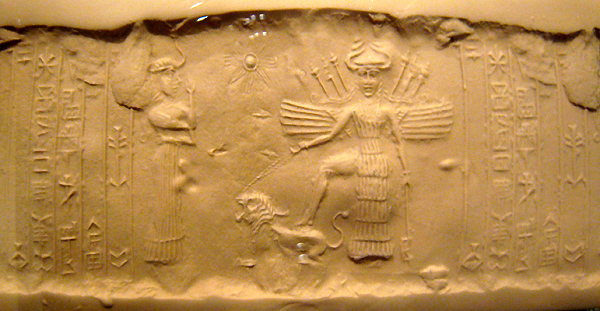
 |
| |
|
|
|
|
World
of the Dead |
|
 |
|
|
Imprint from an Akkadian cylinder seal (III millennium B.C.), showing
the goddess Inanna/Ishtar with spreading wings and a foot resting on a
roaming lion, as evidence of her role as Mistress of the Animals. Behind
the shoulders of the goddess appear some arrows or weapons, denoting her
other function as Goddess of War. One of the most notable myths transmitted
by the ancient Sumerian civilization is the story known with the title
“Inanna’s Descent in the Nether World”. In the narrative,
the goddess goes to the “Land of No Return”, the realm of
her sister Ereshkigal, which is not said explicitly to be beneath the
earth (Pettinato 2005b). Coming to the gate, Inanna is met by the servants
of the Goddess of the Dead, who enjoin her to leave all her dresses and
ornaments, until she is naked and transformed into a corpse by her sister.
The goddess is then raised to life again and brought back on the earth.
The narrative seems to represent the vegetation cycle, that dies every
year and regenerates itself, showing Inanna’s function as a personification
of the generative power inherent in nature. The object is in the Oriental
Institute Museum, University of Chicago. |
|